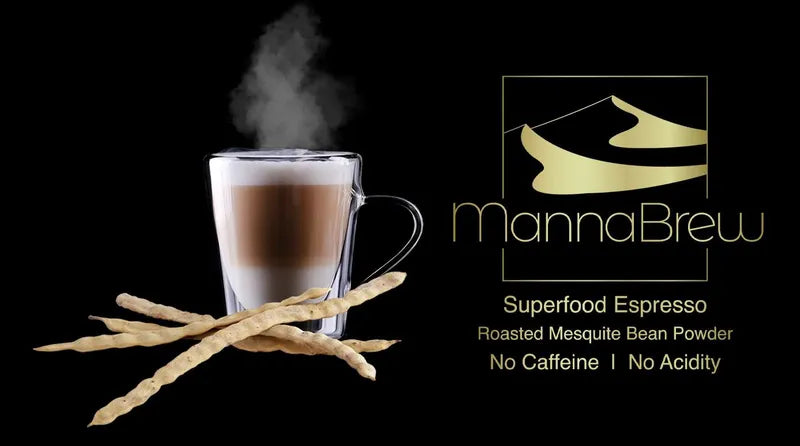The Sustainability of MannaBrew: A Coffee Alternative for a Greener Future

In an era where sustainability is becoming a defining factor in consumer choices, MannaBrew stands out as an eco-friendly alternative to traditional coffee. Made from mesquite seed pods, this innovative beverage not only provides a delicious and nutritious coffee substitute but also promotes environmental responsibility. Here’s how MannaBrew aligns with sustainable practices and why it is a great choice for the environmentally conscious consumer.
Sustainable Sourcing
One of the key sustainability aspects of MannaBrew is its primary ingredient: mesquite seed pods. Unlike coffee cultivation, which often requires extensive deforestation, high water usage, and intensive farming methods, mesquite trees thrive in arid environments with minimal water requirements. They grow naturally in many regions and do not need artificial fertilizers or pesticides, reducing the overall ecological footprint.
Regenerative Agriculture and Biodiversity
Harvesting mesquite seed pods can encourage the conservation and proliferation of mesquite trees, which play a crucial role in regenerating degraded soils. These trees enrich the soil with nitrogen, preventing desertification and supporting diverse ecosystems. In contrast, conventional coffee farming has been linked to monoculture practices that can deplete soil nutrients and reduce biodiversity.
Low-Impact Production Process
MannaBrew’s production process is designed to be low-impact compared to coffee roasting. The mesquite pods are harvested, dried, and roasted without the need for complex processing or excessive energy consumption. Additionally, mesquite trees naturally produce abundant seed pods annually, ensuring a renewable and sustainable supply without the need for replanting or habitat destruction.
Carbon Footprint Reduction
Traditional coffee production involves a long supply chain that contributes significantly to carbon emissions. From large-scale farming operations to international transportation, the environmental cost of coffee is substantial. MannaBrew, by contrast, offers a local and sustainable alternative with a significantly lower carbon footprint. Since mesquite trees grow in various parts of the world, localized production and reduced transportation can further minimize emissions.
Health and Wellness Benefits
Beyond its environmental benefits, MannaBrew provides a natural, caffeine-free alternative to coffee. This makes it an excellent choice for individuals seeking to reduce their caffeine intake while still enjoying a rich, roasted beverage. Additionally, mesquite is packed with nutrients such as fiber, protein, and essential minerals, promoting overall well-being in a sustainable way.
Conclusion
Choosing MannaBrew is not just about personal health benefits—it is a step towards a more sustainable future. By supporting the use of mesquite seed pods as a coffee alternative, consumers contribute to soil regeneration, biodiversity conservation, and reduced carbon emissions. As the world shifts towards more eco-friendly consumption habits, MannaBrew emerges as a smart and sustainable choice for coffee lovers who care about the planet.
